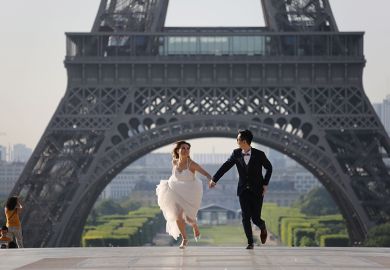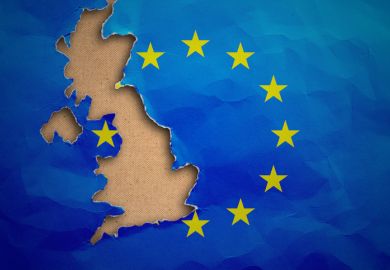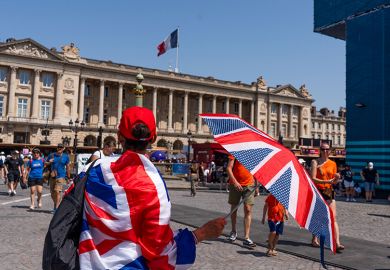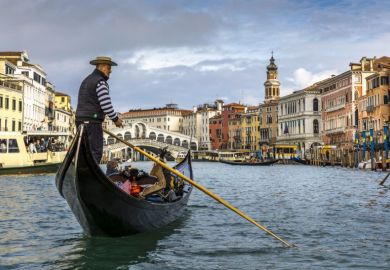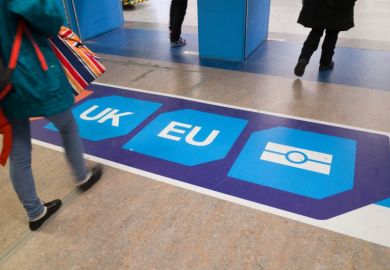Since “Brexit was partly a cultural event, we have to use our best cultural tools to analyse it, some of which come out of literary studies”.
That is the claim of Robert Eaglestone, professor of contemporary literature and thought at Royal Holloway, University of London, who brought together a team of 18 literary scholars, writers and poets for a new collection on Brexit and Literature: Critical and Cultural Perspectives (Routledge), for which all royalties will be donated to the Jo Cox Foundation.
“English studies have always been tied up with ideas about national identity,” Professor Eaglestone explained. “Yet most of the academic conversation about Brexit has come from social scientists. Humanities can give us a deeper, rounder picture…We need to bring our scholarship to bear on this enormous contemporary issue. Literature is kind of messy, just like human beings are.”
Though he admitted that literary studies seldom offered direct “policy implications”, Professor Eaglestone was convinced that they can “feed into our thinking about the nature of communities past, present and future, and help us shape our lives and communities”. Anne Varty’s chapter in his book about the June 2016 “Shore to Shore” poetry tour organised by Carol Ann Duffy, he added, gave a sense of literature “capturing a live wire of feeling, something changing and developing as the tour went through Britain”.
At a launch event for the book held at the University of London’s Senate House, Professor Eaglestone explored the dangerous way that “Brexit discourse is saturated with memory of the Second World War: Spitfires, White Cliffs, Churchill, poor Churchillian rhetoric…the idea Britain ‘was greatest in its history when it stood alone’”.
Other contributors to the book explored further insights to be gained from literature and literary studies.
Kristian Shaw, senior lecturer in English literature at the University of Lincoln, recalled being “openly ridiculed” by colleagues after a visit to family and friends in the North-East of England led him to “put some money on a Leave result in the referendum”. He was now working on the genre of “post-Brexit fiction” he had named “BrexLit” and warned against the danger of just “creat[ing] another leftist echo chamber that neither heals nor speaks to an already fractious nation”. Yet we were beginning to find novels “gesturing towards more inclusive and diverse forms of public culture, identifying the social divisions affecting the nation – and engaging in a struggle with British society and its prevailing political climate”. At a time when national culture was being reshaped, it was crucial that literature should retain its role as “a bastion of cultural cosmopolitanism”.
James Smith, lecturer in English literature at Royal Holloway, University of London, meanwhile, put the case for “a progressive response to Brexit” which “refuse[s] to feel hard done by…and refuse[s] nostalgia, either for preposterous myths of Britain of the past…or for the alleged consensus that aspired to remove crucial questions from the political realm”.
Register to continue
Why register?
- Registration is free and only takes a moment
- Once registered, you can read 3 articles a month
- Sign up for our newsletter
Subscribe
Or subscribe for unlimited access to:
- Unlimited access to news, views, insights & reviews
- Digital editions
- Digital access to THE’s university and college rankings analysis
Already registered or a current subscriber?

